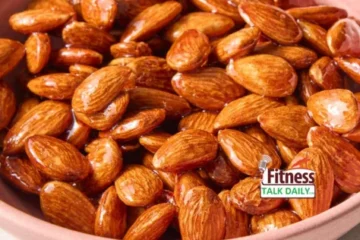Metabolism is a crucial aspect of human health and wellness that plays a significant role in determining how we process and utilize food for energy. It refers to the chemical reactions that occur in the body to convert food into energy, which can be used for physical activity and various other bodily functions.
To maintain a healthy weight and optimal overall health, it’s essential to have a basic understanding of your metabolism. Here are some key points you should know about your metabolism:
- Metabolism varies from person to person: Every individual has a unique metabolism, which is influenced by factors such as age, gender, weight, muscle mass, and genetics.
- Metabolism slows down with age: As you grow older, your metabolism tends to slow down, which can make it more challenging to maintain a healthy weight.
- Muscle mass affects metabolism: Building muscle mass can help boost your metabolism, as muscle burns more calories than fat.
- Certain foods can boost metabolism: Some foods, such as spicy peppers, green tea, and protein-rich foods, are believed to boost metabolism by increasing the body’s metabolic rate.
- Sleep and stress also impact metabolism: Lack of sleep and high levels of stress can negatively impact your metabolism, making it more challenging to maintain a healthy weight.
By understanding these key aspects of metabolism, you can take steps to improve your metabolism and achieve better overall health and wellness. Whether it’s through regular exercise, a balanced diet, or managing stress levels, there are many ways to optimize your metabolism and achieve your health goals.
What are the signs of a slow metabolism?
There are several signs that can indicate a slow metabolism, including:
- Difficulty losing weight: If you’re consistently eating a healthy diet and exercising regularly but are still unable to lose weight, it may be a sign of a slow metabolism.
- Increased fatigue: A sluggish metabolism can lead to low energy levels and increased fatigue throughout the day.
- Constant hunger: If you’re constantly feeling hungry and struggle to feel full after meals, it could be a sign of a slow metabolism.
- Cravings for sugar and carbohydrates: A slow metabolism can lead to cravings for sugary and carb-rich foods, which can further slow down the metabolism.
- Cold intolerance: People with a slow metabolism often feel cold and have difficulty regulating their body temperature.
- Dry skin and brittle hair and nails: A slow metabolism can result in decreased circulation and decreased production of skin oil, leading to dry skin, brittle hair, and nails.
It’s important to note that these symptoms can also be caused by other factors, such as hormonal imbalances, stress, and lack of sleep, so it’s best to speak with a doctor or healthcare professional to determine the underlying cause of your symptoms.
Things that can affect your metabolism
There are several factors that can affect your metabolism, including:
- Age: As you get older, your metabolism tends to slow down, making it more challenging to maintain a healthy weight.
- Genetics: Your metabolism is largely determined by your genetics, and some people are naturally predisposed to a slower metabolism.
- Body composition: Muscle mass burns more calories than fat, so having a higher proportion of muscle mass can help boost your metabolism.
- Hormonal imbalances: Hormonal imbalances, such as thyroid disorders, can affect your metabolism and make it more challenging to lose weight.
- Lack of physical activity: Regular exercise helps boost your metabolism and increase your muscle mass, which in turn helps to burn more calories.
- Stress: Chronic stress can slow down your metabolism and contribute to weight gain.
- Poor sleep: Lack of sleep can negatively impact your metabolism and increase your risk of obesity and other health issues.
- Crash dieting: Rapid weight loss through crash dieting can slow down your metabolism, making it more challenging to maintain a healthy weight in the long term.
By being mindful of these factors and taking steps to optimize your metabolism, you can achieve better overall health and wellness. Whether it’s through regular exercise, a balanced diet, or managing stress levels, there are many ways to improve your metabolism and achieve your health goals.
Which foods increase metabolism and burn fat?
There are several foods that have been shown to increase metabolism and burn fat, including:
- Spicy peppers: Capsaicin, the compound that gives spicy peppers their heat, has been shown to boost metabolism and increase fat burning.
- Green tea: Green tea is rich in antioxidants and contains a natural compound called catechins that have been shown to boost metabolism and burn fat.
- Protein-rich foods: Protein has a high thermic effect, meaning that your body burns more calories digesting protein than it does digest carbohydrates or fat. Eating more protein-rich foods, such as chicken, fish, and legumes, can help boost your metabolism and burn fat.
- Avocados: Avocados are rich in healthy fats that have been shown to increase metabolism and promote weight loss.
- Coconut oil: Coconut oil contains medium-chain triglycerides, which have been shown to increase metabolism and burn fat.
- Coffee: Caffeine, the active ingredient in coffee, has been shown to increase metabolism and enhance fat burning.
It’s important to note that while these foods can help boost your metabolism, they should be consumed as part of a balanced diet, along with plenty of fruits, vegetables, and whole grains. It’s also important to remember that there is no magic food or food group that will automatically cause weight loss. Achieving and maintaining a healthy weight requires a combination of a balanced diet and regular physical activity.
Best food to boost metabolism
There is no one specific food that can significantly boost your metabolism, but including certain nutrient-rich foods in your diet can help to support a healthy metabolism. Here are some foods to consider:
- Protein-rich foods: Foods high in protein, such as chicken, fish, eggs, and legumes, can help to boost metabolism because they require more energy to digest than carbohydrates or fat.
- Spices: Spices such as chili pepper, cumin, and black pepper contain compounds that can help to increase metabolism and burn fat.
- Green tea: Green tea contains catechins, antioxidants that have been shown to increase metabolism and promote fat loss.
- Whole grains: Whole grains such as oats, brown rice, and quinoa are a good source of fiber, which can help to keep you feeling full and support a healthy metabolism.
- Berries: Berries such as strawberries, blueberries, and raspberries are rich in antioxidants and fiber, which can help to support a healthy metabolism.
- Cruciferous vegetables: Vegetables such as broccoli, cauliflower, and kale contain compounds that can help to balance hormones and boost metabolism.
- Nuts and seeds: Nuts and seeds such as almonds, walnuts, and chia seeds are good sources of healthy fats and protein, which can help to support a healthy metabolism.
Remember, a balanced diet and healthy lifestyle, including regular physical activity, are key to maintaining a healthy metabolism and overall health. Additionally, it’s important to talk to your doctor before making any changes to your diet, especially if you have any underlying health conditions.
Exercise and Metabolism
Exercise is one of the most effective ways to increase your metabolism and burn fat. Here are some effective ways that exercise can help boost your metabolism:
- Increases muscle mass: Regular exercise can help increase your muscle mass, which in turn helps boost your metabolism. Muscle tissue burns more calories than fat tissue, so having more muscle mass can help you burn more calories even when you’re at rest.
- Enhances post-exercise calorie burn: After a workout, your metabolism remains elevated for a period of time, allowing you to continue burning calories even after you’ve finished exercising.
- Boosts energy levels: Regular exercise can help increase energy levels, making it easier to stay active and burn more calories throughout the day.
- Helps regulate hormones: Exercise has been shown to improve hormonal balance, which can play a key role in regulating metabolism.
- Reduces stress: Exercise has been shown to help reduce stress levels, which can in turn help prevent the negative effects of stress on metabolism.
To get the most out of exercise for boosting metabolism, it’s important to incorporate both cardio and strength-training exercises into your routine. Aim for at least 30 minutes of moderate-intensity activity most days of the week, and consider incorporating high-intensity interval training (HIIT) for an added metabolism boost.
Remember, however, that exercise alone is not a guarantee for weight loss. A combination of regular exercise and a healthy, balanced diet is the best approach for achieving and maintaining a healthy weight.




